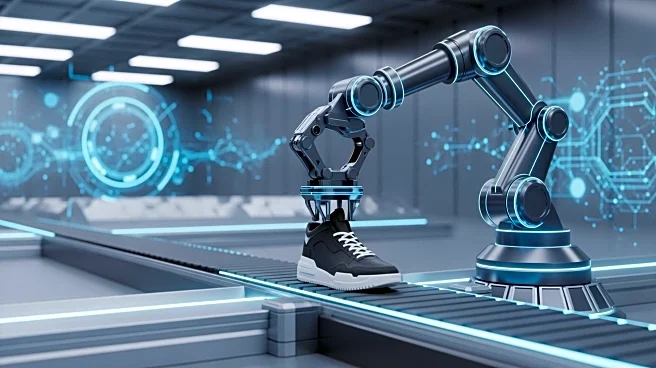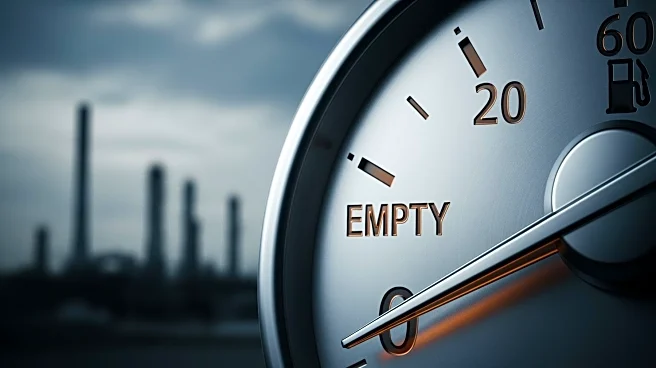What's Happening?
Nike has unveiled a motor-powered 'robot shoe' designed for hands-free entry and exit, enhancing accessibility and performance. AutoStore has expanded its warehouse automation portfolio with new products
like AutoCase and FlexBins, aimed at improving storage efficiency and reducing installation costs. Nauto's AI-driven fleet safety system is also making strides in accident prevention by analyzing driver behavior and road conditions. These developments reflect significant advancements in robotics and automation across various industries.
Why It's Important?
Nike's robot shoe represents a fusion of robotics and wearable technology, potentially setting a new standard for performance footwear. AutoStore's innovations could address labor shortages and rising demand in logistics, offering cost-effective solutions for businesses. Nauto's AI platform enhances road safety, which could lead to reduced accident rates and insurance costs. These advancements demonstrate the growing impact of robotics and automation on consumer products, logistics, and safety.
What's Next?
As these technologies are adopted, they may lead to increased efficiency and safety in their respective fields. Nike's robot shoe could inspire further innovation in wearable technology, while AutoStore's products may become integral to modern warehouse operations. Nauto's AI system could be expanded to more fleets, improving road safety on a larger scale. Continued investment and development in robotics and automation are likely to drive further advancements and applications.
Beyond the Headlines
The integration of robotics into everyday products raises questions about the future of human-machine interaction and the ethical implications of automation. As these technologies become more prevalent, society may need to address concerns about job displacement and privacy. The long-term impact of robotics and automation on cultural norms and economic structures could be profound, necessitating careful consideration and planning.








